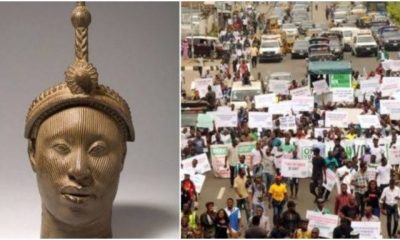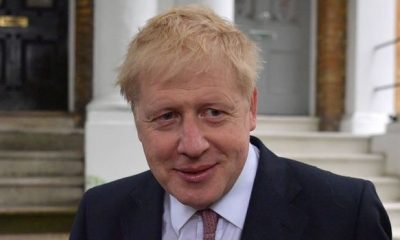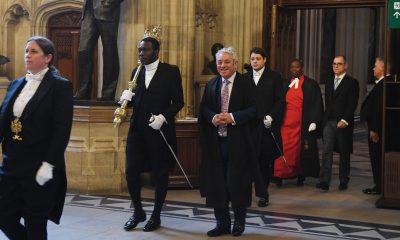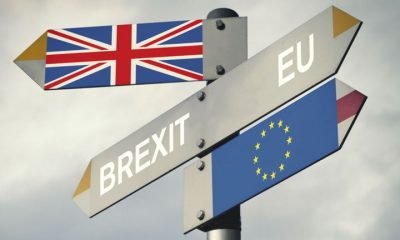World News
Brexit: UK MPs Postpone Decision On Boris Johnson Negotiated Deal

The British Parliament decided on Saturday to postpone its decision on the Brexit agreement between London and Brussels, only 12 days before the planned exit from the European Union.
At a meeting on Saturday 19 October, the British Parliament decided to postpone its decision on the Brexit agreement between London and Brussels, only 12 days before the planned date of exit from the European Union.
The amendment to that effect, tabled by Oliver Letwin, was approved by 322 votes for and 306 against. For his supporters, he aims to give more time to the members to discuss the deal in detail without risking a “no-deal” on October 31 if they have not finished.
Without an agreement formally voted on Saturday, Boris Johnson is forced to immediately ask the Europeans a postponement of Brexit three months. But the Prime Minister assured that he would do everything so that the exit of his country of the European Union intervene as initially planned by 31 October.
“Any postponement would be bad for this country”
“I will not negotiate a postponement with the European Union and the law can not force me to do so,” said the head of the British government. “I will tell my friends and colleagues in the EU exactly what I have said to everyone over the last 88 days, since serving as Prime Minister: that any postponement would be bad for this country, bad for the European Union and bad for democracy, “he said.
Additional time concerning the date of Brexit “is in the interest of nobody,” reacted, in stride, the Elysee. Emmanuel Macron also met in the afternoon with Boris Johnson and insisted on “the need for a quick clarification of the British position”.
For its part, the European Commission has “taken note” of this postponement and asks the British government to inform it of the “next steps” in the divorce proceedings.
Taken out in extremis after laborious negotiations on Thursday, the agreement was supposed to settle the conditions of the divorce after 46 years of common life, allowing a smooth exit accompanied by a period of transition current at least until the end of 2020.
But his success was suspended by the approval of the British Parliament, which has already been intransigent in the past. MEPs have three times rejected the previous exit agreement between former Prime Minister Theresa May and the other 27 members of the European Union.
Convened for the first time on a Saturday since the Falklands War 37 years ago, the House of Commons opened at 8:30 am GMT (9:30 am local time). Boris Johnson was to make a statement to the MPs before the debate and then the vote. The debate was originally scheduled for 90 minutes; it is no longer limited in time and could last all day.
“No better way out”
Boris Johnson has spent all his efforts in recent days to convince members to support his agreement, chaining phone calls and interventions on television.
Arguing that there was “no better way” than his agreement to leave the EU on October 31, the prime minister urged the elected to imagine a world where the obstacle of Brexit, which paralyzes the British political life for three years, will have been “exceeded”. “I think the nation will breathe a great sigh of relief,” he added.
The prospect of a Brexit without agreement is feared by economic circles because it could lead, according to the forecasts of the government itself, shortages of food, gasoline or drugs.












